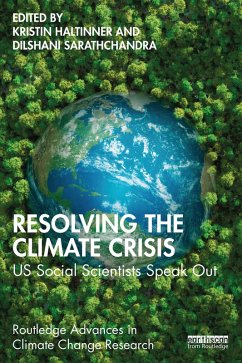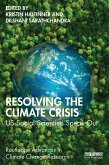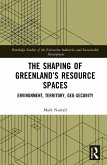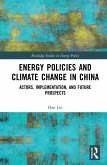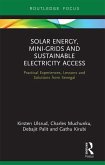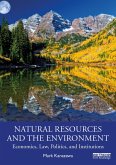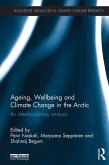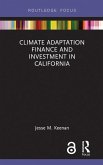Resolving the Climate Crisis (eBook, PDF)
US Social Scientists Speak Out
Redaktion: Haltinner, Kristin; Sarathchandra, Dilshani
55,95 €
55,95 €
inkl. MwSt.
Sofort per Download lieferbar

28 °P sammeln
55,95 €
Als Download kaufen

55,95 €
inkl. MwSt.
Sofort per Download lieferbar

28 °P sammeln
Jetzt verschenken
Alle Infos zum eBook verschenken
55,95 €
inkl. MwSt.
Sofort per Download lieferbar
Alle Infos zum eBook verschenken

28 °P sammeln
Resolving the Climate Crisis (eBook, PDF)
US Social Scientists Speak Out
Redaktion: Haltinner, Kristin; Sarathchandra, Dilshani
- Format: PDF
- Merkliste
- Auf die Merkliste
- Bewerten Bewerten
- Teilen
- Produkt teilen
- Produkterinnerung
- Produkterinnerung

Bitte loggen Sie sich zunächst in Ihr Kundenkonto ein oder registrieren Sie sich bei
bücher.de, um das eBook-Abo tolino select nutzen zu können.
Hier können Sie sich einloggen
Hier können Sie sich einloggen
Sie sind bereits eingeloggt. Klicken Sie auf 2. tolino select Abo, um fortzufahren.

Bitte loggen Sie sich zunächst in Ihr Kundenkonto ein oder registrieren Sie sich bei bücher.de, um das eBook-Abo tolino select nutzen zu können.
This book brings together a team of renowned social scientists to ask not why climate change is happening, but how we might learn from its human dimensions to raise public and political will to fight against the climate crisis.
- Geräte: PC
- mit Kopierschutz
- eBook Hilfe
Andere Kunden interessierten sich auch für
![Resolving the Climate Crisis (eBook, ePUB) Resolving the Climate Crisis (eBook, ePUB)]() Resolving the Climate Crisis (eBook, ePUB)55,95 €
Resolving the Climate Crisis (eBook, ePUB)55,95 €![The Shaping of Greenland's Resource Spaces (eBook, PDF) The Shaping of Greenland's Resource Spaces (eBook, PDF)]() Mark NuttallThe Shaping of Greenland's Resource Spaces (eBook, PDF)42,95 €
Mark NuttallThe Shaping of Greenland's Resource Spaces (eBook, PDF)42,95 €![Energy Policies and Climate Change in China (eBook, PDF) Energy Policies and Climate Change in China (eBook, PDF)]() Han LinEnergy Policies and Climate Change in China (eBook, PDF)43,95 €
Han LinEnergy Policies and Climate Change in China (eBook, PDF)43,95 €![Solar Energy, Mini-grids and Sustainable Electricity Access (eBook, PDF) Solar Energy, Mini-grids and Sustainable Electricity Access (eBook, PDF)]() Kirsten UlsrudSolar Energy, Mini-grids and Sustainable Electricity Access (eBook, PDF)23,95 €
Kirsten UlsrudSolar Energy, Mini-grids and Sustainable Electricity Access (eBook, PDF)23,95 €![Natural Resources and the Environment (eBook, PDF) Natural Resources and the Environment (eBook, PDF)]() Mark KanazawaNatural Resources and the Environment (eBook, PDF)42,95 €
Mark KanazawaNatural Resources and the Environment (eBook, PDF)42,95 €![Ageing, Wellbeing and Climate Change in the Arctic (eBook, PDF) Ageing, Wellbeing and Climate Change in the Arctic (eBook, PDF)]() Ageing, Wellbeing and Climate Change in the Arctic (eBook, PDF)46,95 €
Ageing, Wellbeing and Climate Change in the Arctic (eBook, PDF)46,95 €![Climate Adaptation Finance and Investment in California (eBook, PDF) Climate Adaptation Finance and Investment in California (eBook, PDF)]() Jesse M. KeenanClimate Adaptation Finance and Investment in California (eBook, PDF)0,00 €
Jesse M. KeenanClimate Adaptation Finance and Investment in California (eBook, PDF)0,00 €-
-
-
This book brings together a team of renowned social scientists to ask not why climate change is happening, but how we might learn from its human dimensions to raise public and political will to fight against the climate crisis.
Dieser Download kann aus rechtlichen Gründen nur mit Rechnungsadresse in A, B, BG, CY, CZ, D, DK, EW, E, FIN, F, GR, HR, H, IRL, I, LT, L, LR, M, NL, PL, P, R, S, SLO, SK ausgeliefert werden.
Produktdetails
- Produktdetails
- Verlag: Taylor & Francis eBooks
- Seitenzahl: 258
- Erscheinungstermin: 28. Juni 2024
- Englisch
- ISBN-13: 9781040086681
- Artikelnr.: 70645325
- Verlag: Taylor & Francis eBooks
- Seitenzahl: 258
- Erscheinungstermin: 28. Juni 2024
- Englisch
- ISBN-13: 9781040086681
- Artikelnr.: 70645325
- Herstellerkennzeichnung Die Herstellerinformationen sind derzeit nicht verfügbar.
Kristin Haltinner is a Professor of Sociology at the University of Idaho. Dilshani Sarathchandra is an Associate Professor of Sociology at the University of Idaho.
Introduction
Engaging Social Science Knowledge to Resolve the Climate Crisis
Kristin Haltinner and Dilshani Sarathchandra
Part 1: Rejecting Our Toxic Cultural Stories
Chapter 1: A Community-University Collaboration for Climate Justice
David N. Pellow
Chapter 2: Towards Earthbound Climate Movements: The Importance of Understanding Ontology and Settler Colonialism in Engaging the Climate Crisis
David Osborn
Chapter 3: Gender and Climate Justice
Christina Ergas
Part 2: Recognizing Existing Use of Alternative Stories
Chapter 4: Doing One's Part of the Job: The Norwegian Dugnad Tradition in a Global Climate Perspective
Anne Kristine Haugestad and Kari Marie Norgaard
Chapter 5: In/Action in Addressing the Climate Crisis: The Possibilities of Generation Z
Hannah Block, Cailin Lorek, and Ryan Alaniz
Chapter 6: Queer Political Culture in the Face of the Climate Crisis
Melanie M. Bowers and Cameron T. Whitley
Part 3: Changing the Stories
Chapter 7: Overcoming Hurdles to Climate Mitigation: How Motivational Barriers Impact Strategies for Change
Samantha Noll
Chapter 8: We are the Collective
Kristin Haltinner
Chapter 9: Insights from Social and Behavioral Sciences to Motivate Climate Action
Dilshani Sarathchandra
Chapter 10: ACT Now: Words, Actions, and Values in Tackling the Human Dimensions of the Climate Crisis
Jack DeWaard
Part 4: Amplifying Stories on the Margins
Chapter 11: Dismantling the Settler Paradigm in Indigenous Climate Resilience
Aiyana James and Laura Laumatia
Chapter 12: Criminalizing Climate Change: Defining and Responding to Ecocide
Taylor June, Hollie Nyseth Nzitatira, and Nicole Fox
Chapter 13: Framing the Climate Crisis: A Sociological Lens through Documentary Film
Cedric A. L. Taylor
Part 5: Organizing Through a New Ethic
Chapter 14: From Vulnerability to Co-Production: Centering Indigenous Ecologies in Arctic Climate Adaptation
P. Joshua Griffin
Chapter 15: Closing the Social Gap in the Deployment of Renewable Energy Technologies
David Bidwell and Shannon Howley
Chapter 16: Futures Born of the Past and Present: Building Transitions as Collaborative Projects of Justice
Tristan Partridge and Javiera Barandiarán
Chapter 17: Listening and Building Trust: Community-Led Conservation in Lincoln, Montana
Ryanne Pilgeram and Jordan Reeves
Chapter 18: Cattle Grazing and Climate Change Adaptation: Local Environmental Knowledge and Public Lands Management in the US West
Chloe B. Wardropper and Nicolas T. Bergmann
Conclusion
How to Mobilize Public Will to Resolve the Climate Crisis
Kristin Haltinner and Dilshani Sarathchandra
Index
Engaging Social Science Knowledge to Resolve the Climate Crisis
Kristin Haltinner and Dilshani Sarathchandra
Part 1: Rejecting Our Toxic Cultural Stories
Chapter 1: A Community-University Collaboration for Climate Justice
David N. Pellow
Chapter 2: Towards Earthbound Climate Movements: The Importance of Understanding Ontology and Settler Colonialism in Engaging the Climate Crisis
David Osborn
Chapter 3: Gender and Climate Justice
Christina Ergas
Part 2: Recognizing Existing Use of Alternative Stories
Chapter 4: Doing One's Part of the Job: The Norwegian Dugnad Tradition in a Global Climate Perspective
Anne Kristine Haugestad and Kari Marie Norgaard
Chapter 5: In/Action in Addressing the Climate Crisis: The Possibilities of Generation Z
Hannah Block, Cailin Lorek, and Ryan Alaniz
Chapter 6: Queer Political Culture in the Face of the Climate Crisis
Melanie M. Bowers and Cameron T. Whitley
Part 3: Changing the Stories
Chapter 7: Overcoming Hurdles to Climate Mitigation: How Motivational Barriers Impact Strategies for Change
Samantha Noll
Chapter 8: We are the Collective
Kristin Haltinner
Chapter 9: Insights from Social and Behavioral Sciences to Motivate Climate Action
Dilshani Sarathchandra
Chapter 10: ACT Now: Words, Actions, and Values in Tackling the Human Dimensions of the Climate Crisis
Jack DeWaard
Part 4: Amplifying Stories on the Margins
Chapter 11: Dismantling the Settler Paradigm in Indigenous Climate Resilience
Aiyana James and Laura Laumatia
Chapter 12: Criminalizing Climate Change: Defining and Responding to Ecocide
Taylor June, Hollie Nyseth Nzitatira, and Nicole Fox
Chapter 13: Framing the Climate Crisis: A Sociological Lens through Documentary Film
Cedric A. L. Taylor
Part 5: Organizing Through a New Ethic
Chapter 14: From Vulnerability to Co-Production: Centering Indigenous Ecologies in Arctic Climate Adaptation
P. Joshua Griffin
Chapter 15: Closing the Social Gap in the Deployment of Renewable Energy Technologies
David Bidwell and Shannon Howley
Chapter 16: Futures Born of the Past and Present: Building Transitions as Collaborative Projects of Justice
Tristan Partridge and Javiera Barandiarán
Chapter 17: Listening and Building Trust: Community-Led Conservation in Lincoln, Montana
Ryanne Pilgeram and Jordan Reeves
Chapter 18: Cattle Grazing and Climate Change Adaptation: Local Environmental Knowledge and Public Lands Management in the US West
Chloe B. Wardropper and Nicolas T. Bergmann
Conclusion
How to Mobilize Public Will to Resolve the Climate Crisis
Kristin Haltinner and Dilshani Sarathchandra
Index
Introduction
Engaging Social Science Knowledge to Resolve the Climate Crisis
Kristin Haltinner and Dilshani Sarathchandra
Part 1: Rejecting Our Toxic Cultural Stories
Chapter 1: A Community-University Collaboration for Climate Justice
David N. Pellow
Chapter 2: Towards Earthbound Climate Movements: The Importance of Understanding Ontology and Settler Colonialism in Engaging the Climate Crisis
David Osborn
Chapter 3: Gender and Climate Justice
Christina Ergas
Part 2: Recognizing Existing Use of Alternative Stories
Chapter 4: Doing One's Part of the Job: The Norwegian Dugnad Tradition in a Global Climate Perspective
Anne Kristine Haugestad and Kari Marie Norgaard
Chapter 5: In/Action in Addressing the Climate Crisis: The Possibilities of Generation Z
Hannah Block, Cailin Lorek, and Ryan Alaniz
Chapter 6: Queer Political Culture in the Face of the Climate Crisis
Melanie M. Bowers and Cameron T. Whitley
Part 3: Changing the Stories
Chapter 7: Overcoming Hurdles to Climate Mitigation: How Motivational Barriers Impact Strategies for Change
Samantha Noll
Chapter 8: We are the Collective
Kristin Haltinner
Chapter 9: Insights from Social and Behavioral Sciences to Motivate Climate Action
Dilshani Sarathchandra
Chapter 10: ACT Now: Words, Actions, and Values in Tackling the Human Dimensions of the Climate Crisis
Jack DeWaard
Part 4: Amplifying Stories on the Margins
Chapter 11: Dismantling the Settler Paradigm in Indigenous Climate Resilience
Aiyana James and Laura Laumatia
Chapter 12: Criminalizing Climate Change: Defining and Responding to Ecocide
Taylor June, Hollie Nyseth Nzitatira, and Nicole Fox
Chapter 13: Framing the Climate Crisis: A Sociological Lens through Documentary Film
Cedric A. L. Taylor
Part 5: Organizing Through a New Ethic
Chapter 14: From Vulnerability to Co-Production: Centering Indigenous Ecologies in Arctic Climate Adaptation
P. Joshua Griffin
Chapter 15: Closing the Social Gap in the Deployment of Renewable Energy Technologies
David Bidwell and Shannon Howley
Chapter 16: Futures Born of the Past and Present: Building Transitions as Collaborative Projects of Justice
Tristan Partridge and Javiera Barandiarán
Chapter 17: Listening and Building Trust: Community-Led Conservation in Lincoln, Montana
Ryanne Pilgeram and Jordan Reeves
Chapter 18: Cattle Grazing and Climate Change Adaptation: Local Environmental Knowledge and Public Lands Management in the US West
Chloe B. Wardropper and Nicolas T. Bergmann
Conclusion
How to Mobilize Public Will to Resolve the Climate Crisis
Kristin Haltinner and Dilshani Sarathchandra
Index
Engaging Social Science Knowledge to Resolve the Climate Crisis
Kristin Haltinner and Dilshani Sarathchandra
Part 1: Rejecting Our Toxic Cultural Stories
Chapter 1: A Community-University Collaboration for Climate Justice
David N. Pellow
Chapter 2: Towards Earthbound Climate Movements: The Importance of Understanding Ontology and Settler Colonialism in Engaging the Climate Crisis
David Osborn
Chapter 3: Gender and Climate Justice
Christina Ergas
Part 2: Recognizing Existing Use of Alternative Stories
Chapter 4: Doing One's Part of the Job: The Norwegian Dugnad Tradition in a Global Climate Perspective
Anne Kristine Haugestad and Kari Marie Norgaard
Chapter 5: In/Action in Addressing the Climate Crisis: The Possibilities of Generation Z
Hannah Block, Cailin Lorek, and Ryan Alaniz
Chapter 6: Queer Political Culture in the Face of the Climate Crisis
Melanie M. Bowers and Cameron T. Whitley
Part 3: Changing the Stories
Chapter 7: Overcoming Hurdles to Climate Mitigation: How Motivational Barriers Impact Strategies for Change
Samantha Noll
Chapter 8: We are the Collective
Kristin Haltinner
Chapter 9: Insights from Social and Behavioral Sciences to Motivate Climate Action
Dilshani Sarathchandra
Chapter 10: ACT Now: Words, Actions, and Values in Tackling the Human Dimensions of the Climate Crisis
Jack DeWaard
Part 4: Amplifying Stories on the Margins
Chapter 11: Dismantling the Settler Paradigm in Indigenous Climate Resilience
Aiyana James and Laura Laumatia
Chapter 12: Criminalizing Climate Change: Defining and Responding to Ecocide
Taylor June, Hollie Nyseth Nzitatira, and Nicole Fox
Chapter 13: Framing the Climate Crisis: A Sociological Lens through Documentary Film
Cedric A. L. Taylor
Part 5: Organizing Through a New Ethic
Chapter 14: From Vulnerability to Co-Production: Centering Indigenous Ecologies in Arctic Climate Adaptation
P. Joshua Griffin
Chapter 15: Closing the Social Gap in the Deployment of Renewable Energy Technologies
David Bidwell and Shannon Howley
Chapter 16: Futures Born of the Past and Present: Building Transitions as Collaborative Projects of Justice
Tristan Partridge and Javiera Barandiarán
Chapter 17: Listening and Building Trust: Community-Led Conservation in Lincoln, Montana
Ryanne Pilgeram and Jordan Reeves
Chapter 18: Cattle Grazing and Climate Change Adaptation: Local Environmental Knowledge and Public Lands Management in the US West
Chloe B. Wardropper and Nicolas T. Bergmann
Conclusion
How to Mobilize Public Will to Resolve the Climate Crisis
Kristin Haltinner and Dilshani Sarathchandra
Index
